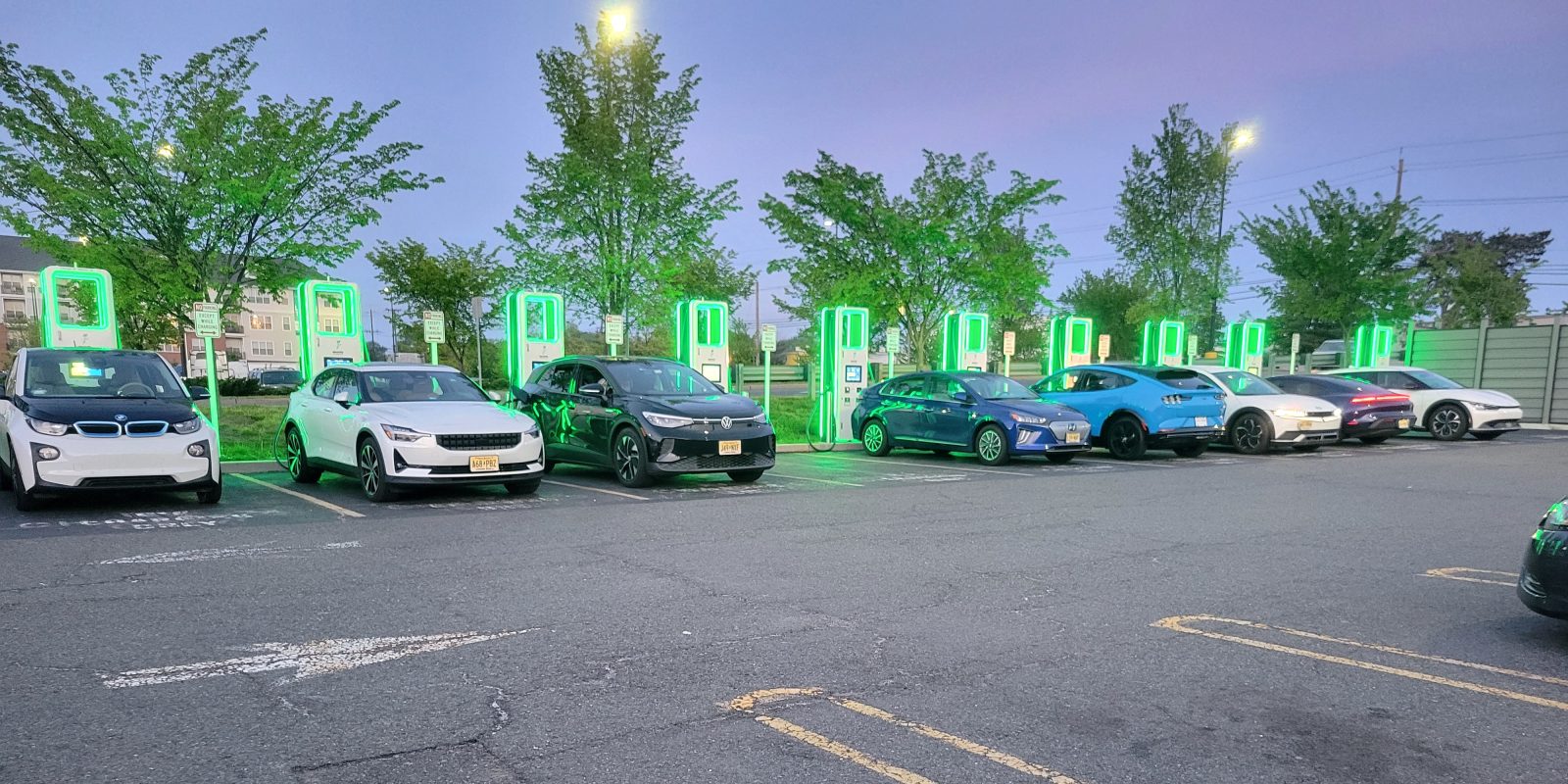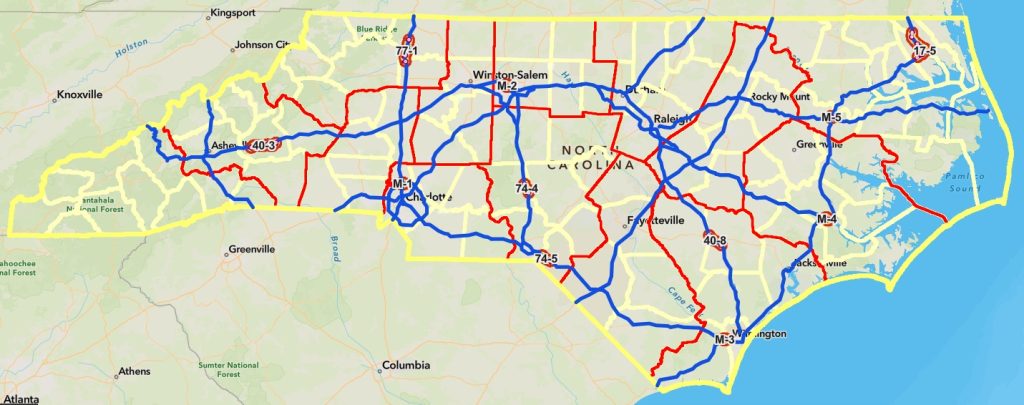
North Carolina has published a map that shows where its first 11 National Electric Vehicle Infrastructure (NEVI) Formula Program EV charging stations will be sited – have a look.
The federal NEVI program allocates $5 billion over five years to help US states create a network of EV charging stations along designated Alternative Fuel Corridors made up of interstates and major highways. The Bipartisan Infrastructure Law has funded the program.
The North Carolina Department of Transportation (NCDOT) says it chose the 11 NEVI-compliant sites because they will fill the gaps where fewer EV charging stations currently exist and serve a more geographically diverse group of people in both rural and urban areas. It published the map so developers can apply for the funds the state received to build and operate the EV charging stations.

The NEVI program requires EV charging stations to be available every 50 miles and within one travel mile of the Alternative Fuel Corridor. EV charging stations must include at least four ports with connectors capable of simultaneously charging four EVs at 150 kilowatts (kW) each, with a total station power capacity of 600 kW or more.
The charging stations must have 24-hour public accessibility and provide such amenities as restrooms, food and beverage, and shelter.
Paula Hemmer, NCDOT’s Statewide Initiative senior engineer, said, “The map gives businesses an opportunity to determine where it would be economically feasible to build and operate EV charging stations. There are a lot of things to consider, like whether a site is easily accessible to all travelers and a site’s proximity to amenities like restaurants and hotels.”
In the first phase, North Carolina will install DC fast chargers along the Alternative Fuel Corridors. The second phase will see the buildout of community-based DC fast chargers and Level 2 chargers.
North Carolina expects to receive up to $109 million from the NEVI program to build out its EV infrastructure along its approved corridors and will do so over the next seven years.
Read more: EV laggard North Dakota just got its first Electrify America charging station
Photo: ChargePoint; Map: NCDOT
To limit power outages and make your home more resilient, consider going solar with a battery storage system. In order to find a trusted, reliable solar installer near you that offers competitive pricing, check out EnergySage, a free service that makes it easy for you to go solar. They have hundreds of pre-vetted solar installers competing for your business, ensuring you get high quality solutions and save 20-30% compared to going it alone. Plus, it’s free to use and you won’t get sales calls until you select an installer and you share your phone number with them.
Your personalized solar quotes are easy to compare online and you’ll get access to unbiased Energy Advisers to help you every step of the way. Get started here. – ad*
FTC: We use income earning auto affiliate links. More.





Comments